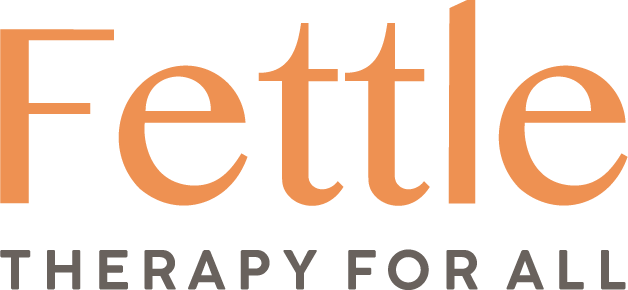
Grief, Loss, and Bereavement
The loss of a close loved one or valued relationship can be a major shock to our nervous systems. These wounds take time to heal, but therapy can help.
Our caring counsellors are standing by.
Ready to book your first online Bereavement Therapy session?
The grief process can’t be rushed.
But before you turn in your bereavement notice at work, consult with a grief counselor. Moving through the grief cycle is best when guided because the stages of grief vary by order and amount of time from person to person. Don’t let the amount of time you take for bereavement leave be a hurried decision. Talk to a grief counsellor today.
Bereavement Support
How soon should you have bereavement counselling, and how does a counsellor help with bereavement? In psychology, bereavement defined is the loss of someone immediately close such as a husband, wife, civil partner, child, parent, or someone who holds a significant role in your life. If a qualified professional psychotherapist or therapist doesn’t provide counselling, grief could be overwhelming or numbing and could lead to serious mental health conditions and diagnoses such as post traumatic stress disorder (PTSD) or complicated grief.
Grief: 7 stages or 5?
The five stages of grief were first developed by a Swiss psychiatrist by the name of Elisabeth Kübler-Ross after her extensive research in working with the terminally ill and their family members. The 5 stages of grief are: denial, anger, bargaining, depression, and acceptance. Kübler-Ross later added two more stages: shock and guilt. The grief stages after death can be in any order, or last for any amount of time. Some may not experience all of the stages of grief after death.
Ready To Book?
General Loss
General loss and grief can present similarly to bereavement symptoms and can be treated with similar methods such as cognitive behavioural therapy (CBT). Examples of general grief and loss may include having grief for a pet or experiencing one or more stages of grief in a breakup. Another example is grieving the loss of a job or an item of nostalgia or sentiment such as a family heirloom.

Other Types of Therapy in Ireland
Therapy for Trauma
The truth is you can’t foresee trauma and the impact it will inflict. However, the good news is that there is hope in therapies for trauma. These include:
Cognitive Processing Therapy (CPT)
Exposure therapy
Eye Movement Desensitization and Reprocessing (EDMR)
Psychodynamic therapy
Cognitive Processing Therapy
This type of therapy stems from Cognitive Behavioural Therapy. CPT is quite specific and strategic in the treatment of post-traumatic stress disorder (PTSD). In essence, it targets and seeks to provide healing and support for all the symptoms, including destructive beliefs, directly related to traumatic experiences.
Therapy for CPT, through psychoeducation, aids with constructing a new outlook on the trauma inflicted in an effort to intercept the negative impact it places on life.
Anxiety
Anxiety is a common human response to an anticipated event or remembering a traumatic incidence. Anxiety no longer remains a mere response if it continues months after the anticipated event or incident has occurred. In this instance, it is possible that you are dealing with an anxiety disorder.
Therapy for anxiety is very helpful in light of a disorder. The common therapy typically used for anxiety is a form of talk therapy psychologically referred to as cognitive behavioural therapy (CBT). CBT works by pinpointing negative behaviours and habits and then utilizing coping skills and strategies to minimize and fully eradicate the need to become fearful or act in avoidance. Cognitive behavioural therapy will improve thought processes and instill the courage to help combat anxiety triggers and attacks. Cognitive Behavioral therapy also includes exposure therapy which is also very instrumental in treating anxiety disorders.
Frequently Asked Questions
-
You will need some kind of support system for how to deal with grief, but 3 ways to deal with grief are joining local or virtual bereavement support groups, trying daily grief meditation, and booking your first appointment with a bereavement counselor. How do you get over the death of a loved one? Most people who have experienced the loss of a loved one will say time, but they also say you never really get over your loss.
-
The grief cycle is delicate and different for everyone. Some people are eager to regain control of their life. These negotiations to regain control may be to return to work or school within a certain amount of time which is one of the grief stages, bargaining. How long do people usually take off for bereavement? It honestly varies from person to person. However, finances usually play a heavy role in the decision.
-
When someone is experiencing grief, physical symptoms can vary based on the individual and the stage of grief they are in. Cognition and emotion affects our body to a large degree, and can most certainly target the immune system making you more susceptible to illness. You may feel numbness, joint pain, low energy levels, or shaky. You may also experience sleep disturbances, digestive problems, shortness of breath, or tightness in your chest. You may become overly sensitive to temperature, noise, or light. Weight loss or weight gain is also common.
-
Ireland does provide bereavement payment in different forms, but there are eligibility requirements for the various situations of family bereavement. An application is required to receive government bereavement benefits. Additionally, bereavement financial support under the Supplementary Welfare Allowance scheme may be available to those that can’t afford funeral expenses.
Meet Fettle’s Trusted Online Counsellors!
Our qualified psychotherapists are ready to help you develop strategies for coping with your grief.
Click through to read a therapist’s bio or to book a session.


































